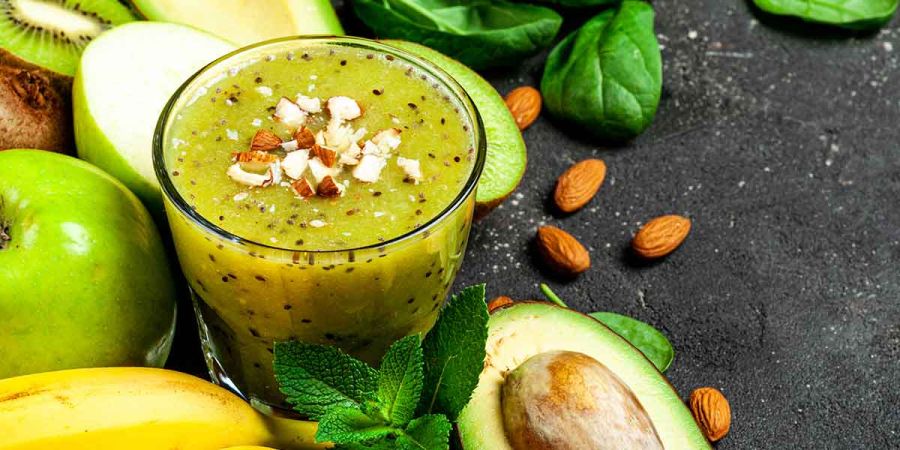
Focus on Nutritient
I just need something sweet…
Imagine you are riding in a luxurious sports car or the car of your dreams. You are enjoying the feel of the leather against your skin, the gentle hum of the engine, the smooth steering, you feel incredible, alive and empowered. You pull into a petrol station and only put the best fuel in to keep the car running optimally, efficiently and clean knowing it will increase the longevity of its life plus less maintenance costs. Why do we not treat our own bodies this way? Why would you put inferior fuel into your own body?
So, I invite you to walk along with me for a moment to learn some cool nutrition facts about your body and how we can live to the best of our abilities towards a healthier version of ourselves.
Are you with me on this? I may challenge you a little and make you feel uneasy but hey, life is one hell of a ride so let us live well whilst doing it!!
I know you are all incredibly strong individuals with such a determined, driven and curious heart, I know this because you are part of team Scuba Gym Australia and we want what is best for you on all levels, physically, mentally and nutritionally. We don’t want you feeling bloated, fatigued, sleep deprived or moody, supporting your body with great nutrition will help to eliminate all these symptoms plus more.
When the taste buds take over
Most of us are conscious of what we eat particularly for breakfast and lunch and make great choices but when it comes to three o’clock in the afternoon, we can feel like someone else has taken over our body! The desire for and subsequent consumption of sweet food at this time of day can take hold without you really knowing why or what to do about it. Too many people reach for sweet food that doesn’t serve their health, in fact, it may contain substances that actually have the potential to take away from their health, yet they feel powerless to live any differently, having tried to change their sweet food habits many times.
And if it is not reaching for sweet food at three o’clock, it is reaching for sweet food after dinner or late at night. Many people grew up in households where the meal wasn’t complete unless there was a dessert or at least something sweet and it can be particularly difficult to move past these habits. Other habits we create are rewarding ourselves for completing a task with a sweet, we do it to our children, our family and friends. We set these unhealthy habits without even realising they are detrimental to our own health. Can I challenge you, next time you wish to treat yourself go for the apple, some nuts, a date something that has been grown from the ground not from a packet. Treat yourself foods that will nourish you instead and reward your body with what it is crying out for, those nutrients (vitamins and minerals) required to feed us on a cellular level, emotionally and mentally and physically.
There is a big difference nutritionally between a couple of squares of dark chocolate and the whole block, or a homemade fruit and nut ball versus a packet of store-bought biscuits.
How much do you value your health, what are you prepared to do about it! Understanding that our body has so many interrelated systems that help us to be in balance is absolutely incredible. Ideally, we should be looking at our body with the approach of vitalism not reductionism. All systems work together to create homeostasis, it does its best to do this and it needs our help.
However, the often-relentless guilt that consuming something that is perceived as ‘bad’ or ‘unhealthy’ is in my opinion just as damaging to your health as the actual poor-quality food. Food is nutritious or it is not. This shift in language alone can assist people to make better food choices. When it comes to reducing your reliance on sweet foods, a gradual reduction can work to change taste preferences. The taste buds on our tongue are a truly unique sensory organ. Taste buds renew every 10 to 21 days and because of this short renewal time we can train our taste buds to enjoy food with less sweetness.
By changing the source of the sweet foods from highly refined sugars to sweetness from nature, you can lower the threshold level of sweet food you prefer. Another way to shift your taste bud profile away from sweetness is, if you have smoothies made entirely of fruit, you can slowly, week by week, start replacing some of the fruit with green leafy vegetables which are naturally bitter. Eventually, once you have gotten used to vegie smoothies with only a small amount of fruit, you will find a fruit-filled smoothie too sweet for your taste buds.
Added sugar and inflammation
Consuming high amounts of added or free sugar and heavily refined or processed food and drink is implicated in causing a sudden spike in blood glucose levels as well as the dramatic drop that can follow, which activates the systemic stress response. This then triggers a spike in the inflammatory response and is normal.
However, eating and drinking these persistently and consistently can contribute to on-going low-grade inflammation. This is unhelpful to overall health. Eating a lot of starches and sugars can increase the likelihood of yeast overgrowth, toxic bowel and an impaired ability of the liver to remove toxic materials from the body, all of which increase the risk of disease.
All non-fibrous carbohydrates stimulate the secretion of insulin which is the fat storage hormone or damage the body and brain via a process known as glycation (in which sugars in the bloodstream react with proteins and fats and cause them to deteriorate).
Among examples of carbohydrate foods are bread, pasta, cereal, rice, potatoes, granola, dried fruit, juices, candy, chocolate, desserts and alcoholic beverages.
What is sugar?
Sugars are simple carbohydrates and they are fast metabolizing and harmful strains of bacteria in our bodies love to feed off simple sugars or carbs, while the slower metabolizing bacteria love to feed off complex carbohydrates, like fibre. In nature, we simply do not come across simple carbohydrates very often.
They are bound up in the fibrous skins of fruit and vegetables. When we eat them with that packaging, we have to break down that fibre, so the sugars are released more slowly, and we metabolize them more slowly. But in our modern diet, we come across sugar almost all the time and it rarely comes with that fibre packaging. We are designed to only eat 5 – 9 teaspoons of sugar a day!!
Reducing reliance of sweet food
Some people like to completely overhaul how they eat and feel energised and excited by doing so. For others, though, making small committed changes over time means you can work towards consuming less processed food and enjoying more real food. I am certainly a big believer that it is what you do every day that impacts on your health, not what you do occasionally.
Often our craving for sugar has more to do with an emotional need that isn’t being met. ‘Something sweet’ is often perceived as a symbol of joy and we become conditioned to need something sweet to feel complete and satisfied. Here are five strategies you can use to reduce your reliance on sweet food.
Fuel yourself for longer
For far too long people have been afraid to incorporate good fats in their diets, due to the belief that ‘fat makes you fat’. Try adding more fat to your meals, particularly at lunch, in the form of avocado, nuts, organic butter, coconut, tahini or oily fish, and observe whether your desire for sweet foods mid-afternoon diminishes.
Good fats slow down the release of glucose into your bloodstream, meaning you actually stay full for longer. Slow down If you amp yourself up on caffeine, live on adrenalin due to your perception of pressure and urgency, or push your body intensely, your body will predominantly burn glucose and you will crave sugar to replenish your stores.
Slow down! I cannot emphasise enough the importance of activating the rest and repair arm of the nervous system (the parasympathetic nervous system), using breathe-focused movement, which allows your body to efficiently use body fat as a fuel. Not only will you feel a greater sense of calm, you are also far less likely to experience hunger that results in you eating the entire contents of the pantry.
Increase your consumption of leafy green vegetables
Leafy greens tend to be bitter, which helps reduce cravings for sugar. If you eat sugar when you are feeling stressed and depressed, experiment by adding more leafy greens, like silver beet, kale, spinach and mustard greens to your meals every day.
A couple of squares of dark chocolate
When I say dark chocolate, I am talking about 70 percent cacao content and upwards! A little goes a long way and it is a good source of antioxidants. The more bitter varieties of dark chocolate tend to mean you are satisfied with only one or two squares.
Explore the emotional connections to sweetness
Often our craving for sugar has more to do with an emotional need that isn’t being met. Identify other non-food related activities that give you a feeling of sweetness and joy and incorporate more of these into your life. Get up and watch the sunrise every morning for a week, write a list of all the things you are grateful for, watch your children or grandchildren sleep, or book a getaway with friends, whatever spins your tyres, and notice whether having things to look forward to diminishes your sugar cravings.
Next time you reach for a sweet treat, say to yourself, do I really need this, is this going to feed my body or fuel inflammation?
CHIA OAT PUDDING
By Sue Bradley of In8lyGood
Ingredients
1/3 cup oats
2 Tbsp chia seeds Coconut milk
¼ tsp cinnamon
¼ tsp vanilla essence
Method
- Place all ingredients into a jar or glass and fill so all ingredients are covered with coconut mylk, mix to combine.
- Leave for a few hours or overnight in the fridge.
- Serve with your favourite berries and nuts top with coconut, hemp seeds, cacao nibs then drizzle with honey or maple syrup. You could also add a tsp of coconut yoghurt.


Lyndi Leggett
Lyndi Leggett is the founder of The Scuba Gym Australia and is a NAUI/RAID Scuba Instructor. Lyndi is a passionate advocate for offering all people with disabilities and special needs the opportunity to experience life-changing healing through the benefits of scuba diving.
